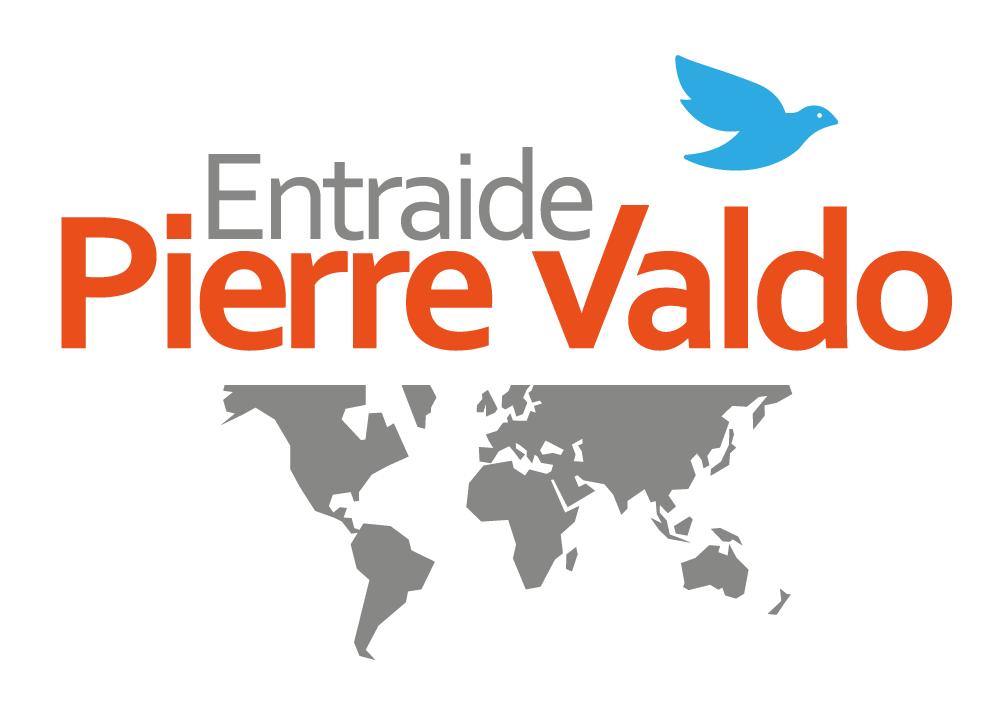
Integration and Emergency Housing
Social and professional inclusion and accommodation for people in emergency situation
Housing and social rehabilitation centres (CHRS in French)
As part of the sociomedical establishments (ESMS) those structures have to ensure the reception, housing, support and social inclusion of individuals or families in vulnerable situation and identified as such by the social services: reception, information and orientation service (SIAO/115), the social monitoring centre called Maison de la Veille Sociale, etc. CHRSs are invaluable to residents in their struggle to regain personal and social autonomy: access to accommodation, employment, and vocational training, etc. They could serve as specialised institutions for a specific audience or institutions of general integration. As for the people taken into care, they might be excluded people in wandering situation, victims of violence, addicted people or returning citizens and young adults particularly vulnerable.
CHRSs are funded by a global national grant. Refugees housed pay a contribution to their housing and maintenance expenses based on their income.
Entraide Pierre Valdo manages several CHRSs including one in Grenoble, established in 1953 by La
Relève which merged with Entraide Pierre Valdo in 2021 and which houses single men..
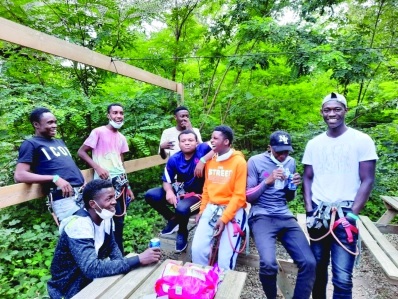
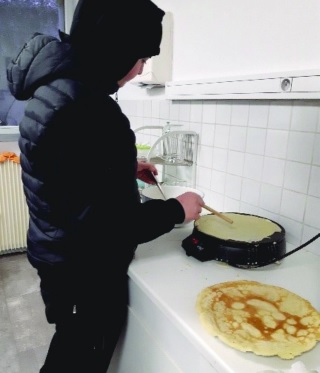
Intermediation in housing (IML in French)
IML mechanisms are designed to house families in decent and safe accommodation when in trouble of finding independent housing in the private sector. In this respect a social third party, in this case Entraide Pierre Valdo, intervenes to negotiate rent and simplify the relationship between the tenant and the lessor.
Thanks to the IML scheme, accommodation is provided to households in very precarious situations, for example those having to leave housing structures and who have not been able to find private accommodation by themselves.
In such schemes, Entraide Pierre Valdo intervenes to provide renting/sub-letting: the owner rents an apartment to Entraide Pierre Valdo on a renewable lease so that the association becomes the tenant who ensures the payment of the rent, other expenses as well as regular maintenance. The accommodation is available to a family ideally until it is safe to transfer the lease to them.
Emergency housing centres (CHU in French)
Emergency housing is provided by the CASF and can unconditionally offer a temporary solution for a person without housing, either because he/she is homeless or because he/she has had to leave home hastily and is in a social, mental or health crisis, including female victims of domestic violence.
In this context, the association manages several CHU type structures (hostel type facilities or diffuse flats). People and families housed are benefit a tailored diagnosis of their situation and a follow-up of the problems identified: access to health, administrative regularisation procedures, finding or maintaining a job, rebuilding family ties, children’s schooling, etc.
In the same way, Entraide Pierre Valdo manages a new measure called MATER designed for pregnant or postpartum women and their children, implemented with dedicated resources in the city of St Etienne.Other places / structures are available for people who have limited residence rights: such as foreign parents of French children, or foreign people with residence permit due to illness etc. In this framework Entraide Pierre Valdo’s expertise and knowledge on asylum policy and foreigners' rights is crucial in achieving the best possible support on refugees during their stay
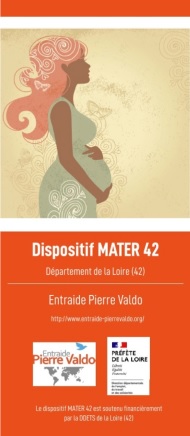
Sheltering
Accommodation for the most vulnerable people throughout the year is a recurring issue, especially during particularly sensitive periods such as under extreme weather conditions, health crises such as Covid-19, etc. In these situations, national solidarity comes into play and the authorities find place for homeless people and those ‘ill-housed’.
Through its knowledge, Entraide Pierre Valdo is requested by national services in different areas to identify and implement quick solutions: opening ad hoc housing centres, gaining fast access to hotel rooms etc. Showing great responsiveness, Entraide Pierre Valdo ensures a tailored diagnostics to identify and report vulnerabilities for each refugee. According to the conditions of every scheme, the field teams of the association work in close collaboration with stakeholders of charity organisations.
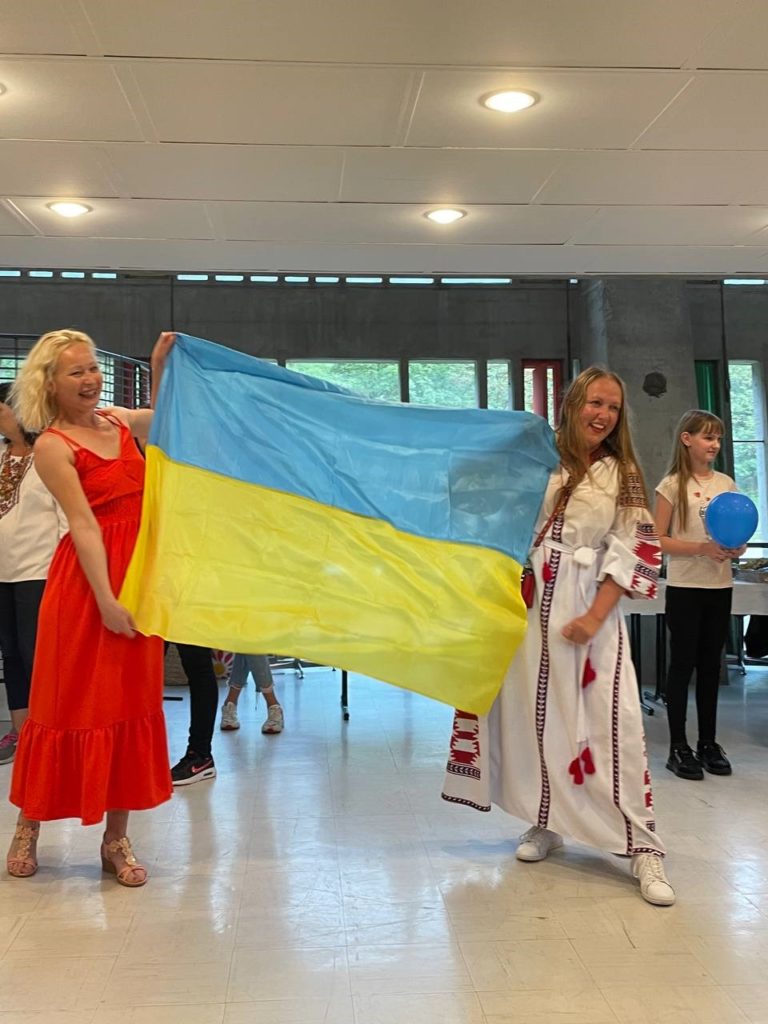
Photo credit: Prefecture of the Loire
Registration of Ukrainian nationals (since February 2022)
Since 2022, France has been registering Ukrainian refugees, who are under the ‘Temporary Protection’ status defined and implemented in Europe.
To make the task easier Entraide Pierre Valdo was appointed official operator and put in charge of the departmental network in 4 departments: Vaucluse, Isère, Loire, and Haute-Loire.
The association was commissioned to manage several actions for this situation, including the management of information offices and registration centres for initial entries as well as temporary accommodation. This action is conducted in close collaboration with the decentralised national services (OFII, Directorate for employment, labour, and solidarity, etc.) and with the various stakeholders (CAF, schools, etc.). The commitment includes socio-administrative and employment support for people who have accessed housing, for example through rental intermediation, or who have had access to volunteered private accommodation or in housing provided by local authorities.
Press Rewiew :
Entraide Pierre Valdo > Ukrainian Reception Facilities.
(entraide-pierrevaldo.org)
Other recent actions implemented in assistance to the state for unforeseen needs.
Public authorities often approach Entraide Pierre Valdo to suggest solutions that are in line with its mission of public interest by virtue of its experience and capacity to deploy teams and allocate resources at short notice in unexpected situations. For example, through the reception of:
- people evacuated from the Lande de Calais or insalubrious camps in Île-de-France.
- Syrian nationals and/or foreign minors during the 2015-2016 migration events.
- Afghan nationals evacuated from Kabul airport in summer 2021 (APAGAN Operation).
On top of these situations, many other measures were implemented in response to the sanitary issues caused by the Covid-19 pandemic in 2020 and 2021.
The pandemic has led the association to set up and manage specialised housing centres opened at very short notice and in close collaboration with decentralised state services and the health authorities. Set up for non-severe Covid-19 patients (vulnerable homeless people), this type of accommodation was occasionally used to take care of Covid patients unable to get isolated in their own homes and who asked for accommodation adapted to their situation.
Along the same lines, Entraide Pierre Valdo was entrusted with the specific mechanisms for non-severe Covid-19 patients (CTAI). In the Vaucluse, Entraide Pierre Valdo contributed to the opening and management of several vaccination centres: a large departmental vaccination centre, a pop-up vaccination centre during the Avignon Festival, a vaccination centre on the University premises for students in the most precarious situations, etc.
Testimonials

How did you set up the 1st vaccination centre?
The initial request was made by the police commissioner of Vaucluse, who needed an accommodation centre specifically for non-severe Covid-19 patients to allow self-isolation under the right conditions. The first step was to organise, plan and pay the medical staff whose shifts are subjected to my signature. Meanwhile, the national services, the health authorities (ARS in French) and the national healthcare insurance office (CPAM in French) wanted us to manage the appointments via their platform
What were the main steps ?
The first step was creating a model that could work with the specifications we were given: organising the premises, recruiting the teams, including Entraide Pierre Valdo’s employees for logistics. Two profiles were hired specifically for this event: front desk staff and managers. The second step was the actual implementation, which was the most challenging: organising the medical staff as we needed doctors for pre-diagnostics and vaccination go-aheads, nurses, pharmaceutical assistants, and injectors. The number of vaccines went up to as many as 1000 a day with as many as 40 members of medical staff.
What is the difference between the types of centres (departmental/pop-up ?
The 1st pop-up centre was set up during the Avignon Festival and was smaller than the departmental centre designed to cater for the needs of the entire area and still fully operational to this day. The 2nd was in a priority sector of the town as from August and aimed to give easy access to the vaccination for people who were less inclined to get vaccinated or for whom vaccines were more difficult to access. The 3rd centre was opened in Avignon University where fewer vaccinations were carried out because teachers and students, who were the main target, had already been vaccinated.
This activity is not in the usual scope of Entraide Pierre Valdo: what new skills were needed ?
We usually deal with asylum applications and support for BPIs in Vaucluse, but the association created CHSs in the very beginning of the pandemic, without necessarily having long-term visibility. The ability to implement solutions for critical situations has prompted Entraide Pierre Valdo to acquire healthcare skills. We had to recruit medical staff: 3 doctors, 3 nurses and 6 nursing assistants.
Can this experience be used for other mechanisms ?
It is already in use since the Avignon University asked Entraide Pierre Valdo to set up a medical centre open from Monday to Friday, with a part-time general practitioner GP (50%), a part-time psychiatrist (25%) and 2 nurses. This set up is regulated by a partnership agreement.
